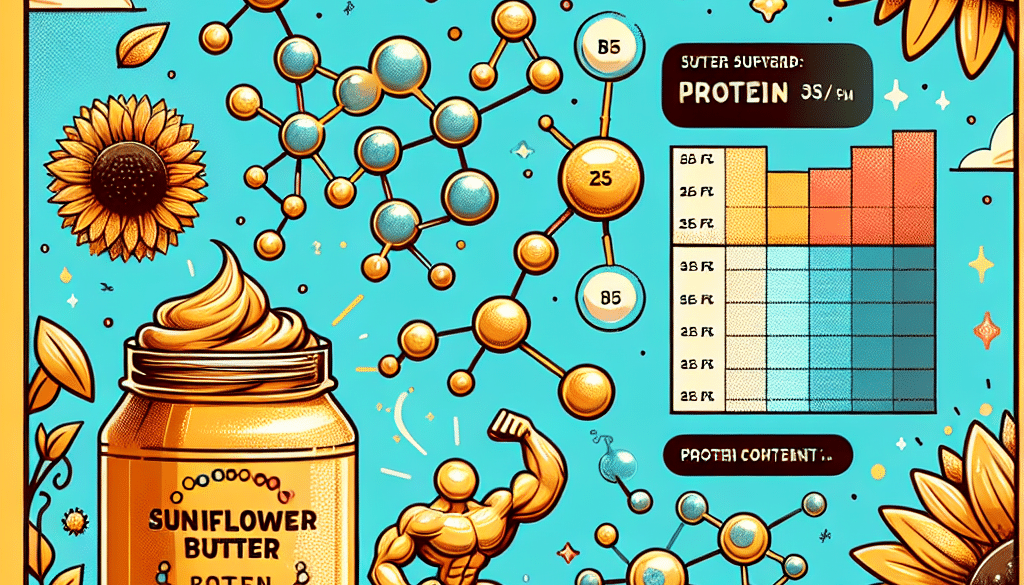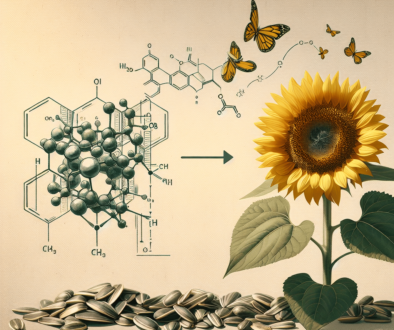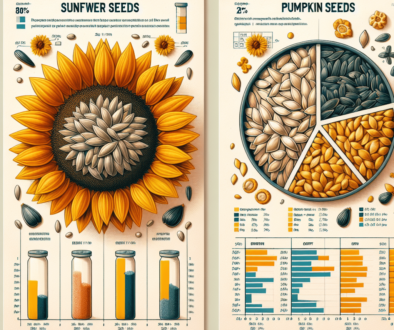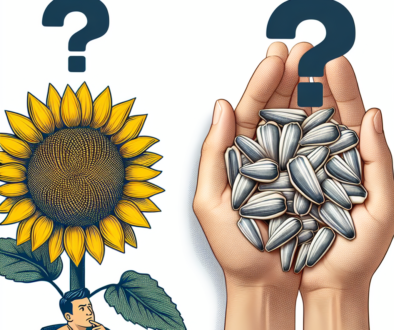Sunflower Butter: Protein Content Explored
-
Table of Contents
- Sunflower Butter: A Deep Dive into Its Protein Content
- Understanding Sunflower Butter
- Nutritional Profile of Sunflower Butter
- Protein Content in Sunflower Butter
- Comparison with Other Nut and Seed Butters
- Health Benefits of Sunflower Butter
- Using Sunflower Butter in Your Diet
- Case Studies and Research on Sunflower Butter
- Consumer Trends and Market Growth
- Conclusion: The Protein-Packed Power of Sunflower Butter
- Discover ETprotein’s High-Quality Protein Products
Sunflower Butter: A Deep Dive into Its Protein Content
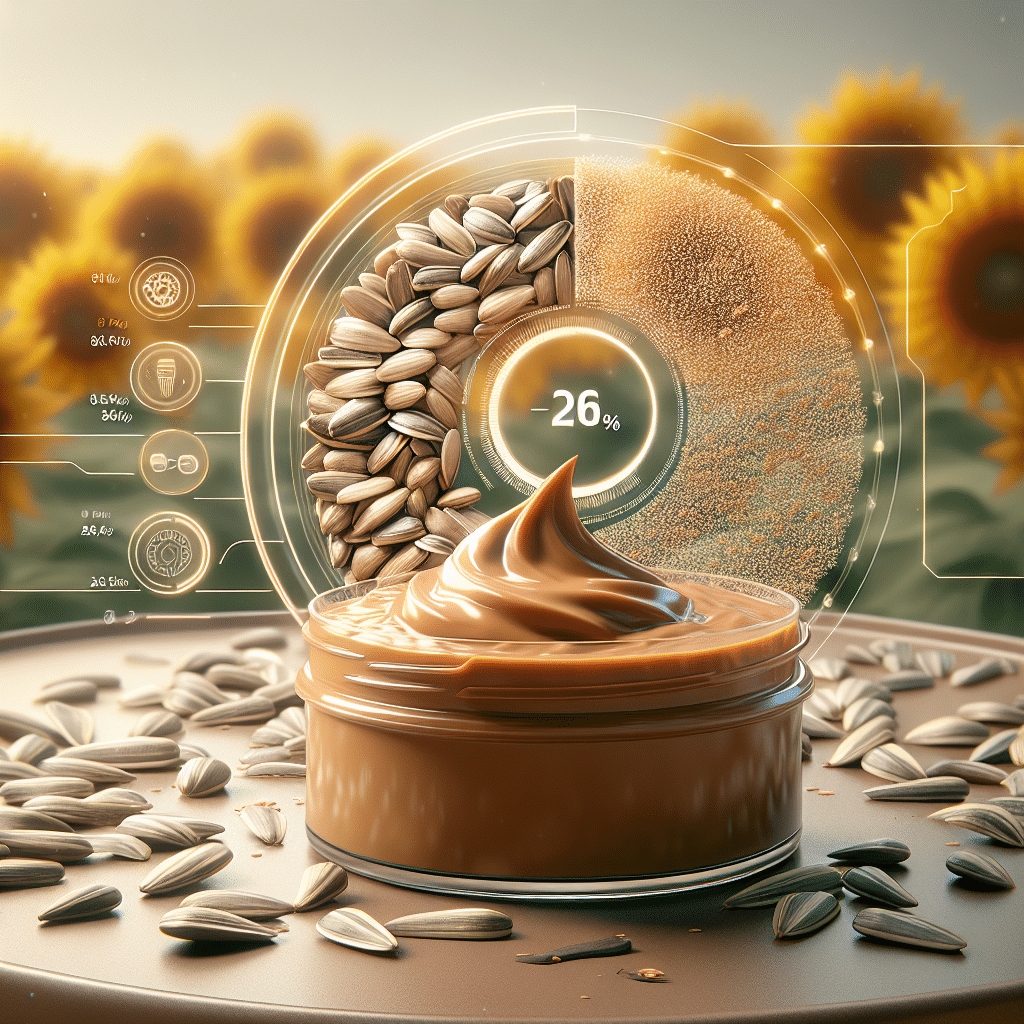
As the world becomes increasingly health-conscious, the demand for nutritious, plant-based alternatives to traditional foods has skyrocketed. Among these, sunflower butter has emerged as a popular choice for those seeking a delicious and protein-rich spread. This article explores the protein content of sunflower butter, its health benefits, and how it compares to other nut and seed butters.
Understanding Sunflower Butter
Sunflower butter, made from the seeds of the sunflower plant, is a creamy spread that has gained popularity due to its unique flavor and health benefits. Unlike peanut butter or almond butter, sunflower butter is free from common allergens, making it a safe option for those with nut allergies. But what about its protein content? Let’s delve into the nutritional profile of sunflower butter.
Nutritional Profile of Sunflower Butter
Sunflower butter is not only rich in protein but also contains essential vitamins and minerals. A typical serving of sunflower butter provides a substantial amount of protein, making it an excellent addition to a balanced diet. Here’s a breakdown of its nutritional content:
- Protein
- Fiber
- Healthy fats
- Vitamin E
- Magnesium
- Phosphorus
- Zinc
These nutrients contribute to various health benefits, from muscle repair and growth to improved heart health and immune function.
Protein Content in Sunflower Butter
When it comes to protein content, sunflower butter is a powerhouse. A two-tablespoon serving typically contains around 5 to 7 grams of protein, depending on the brand and preparation method. This makes it comparable to other seed and nut butters in terms of protein density.
Comparison with Other Nut and Seed Butters
How does sunflower butter stack up against other popular spreads like peanut, almond, and cashew butter? Here’s a comparative analysis:
- Peanut Butter: Approximately 7-8 grams of protein per serving
- Almond Butter: Around 6-7 grams of protein per serving
- Cashew Butter: Typically 5-6 grams of protein per serving
While the protein content is similar across these options, sunflower butter offers a unique nutrient profile that may be more suitable for certain dietary needs.
Health Benefits of Sunflower Butter
The benefits of incorporating sunflower butter into your diet extend beyond its protein content. Its rich supply of nutrients contributes to several health advantages:
- Supports heart health
- Boosts immune system
- Contributes to muscle maintenance and growth
- Provides antioxidant properties
- May aid in weight management
These benefits make sunflower butter an excellent choice for individuals looking to improve their overall health and well-being.
Using Sunflower Butter in Your Diet
Incorporating sunflower butter into your diet is easy and versatile. It can be used as a spread on toast, added to smoothies for a protein boost, or included in various recipes. Here are some creative ways to enjoy sunflower butter:
- As a dip for fruits and vegetables
- In homemade energy bars or protein balls
- As a base for salad dressings or sauces
- Mixed into oatmeal or yogurt
With its creamy texture and rich flavor, sunflower butter can enhance the taste and nutritional value of many dishes.
Case Studies and Research on Sunflower Butter
Several studies have highlighted the benefits of sunflower seeds and their derivatives. Research indicates that the consumption of sunflower seeds is associated with a reduced risk of chronic diseases, thanks to their nutrient composition. Sunflower butter, being a concentrated form of these seeds, shares these health-promoting properties.
One study found that the inclusion of sunflower seeds in the diet led to improvements in heart health markers, such as cholesterol levels. Another research project suggested that the vitamin E found in sunflower seeds could have a positive impact on skin health and aging.
Consumer Trends and Market Growth
The market for sunflower butter has seen significant growth in recent years, driven by consumer demand for healthy and allergen-free alternatives to traditional nut butters. This trend is expected to continue as awareness of the health benefits of sunflower butter spreads.
Statistics show that the plant-based spread market, including sunflower butter, is expanding at a rapid pace, with forecasts predicting continued growth in the coming years.
Conclusion: The Protein-Packed Power of Sunflower Butter
In summary, sunflower butter is a nutritious and protein-rich spread that offers a multitude of health benefits. Its comparable protein content to other nut and seed butters, combined with its unique nutrient profile, makes it an excellent choice for those seeking a healthy and delicious alternative. Whether you’re looking to boost your protein intake, manage allergies, or simply enjoy a tasty spread, sunflower butter is a versatile and beneficial addition to any diet.
Discover ETprotein’s High-Quality Protein Products
If you’re interested in exploring more protein options, consider ETprotein’s range of products. ETprotein is a reputable protein Chinese factory manufacturer and supplier, known for its high-quality organic bulk vegan protein and plant proteins. Their offerings include Organic rice protein, clear rice protein, pea protein, clear pea protein, pumpkin seed protein, sunflower seed protein, mung bean protein, and more.
ETprotein’s products are characterized by a neutral taste, non-GMO, and allergen-free attributes, catering to a diverse range of industries. They serve nutraceutical, pharmaceutical, cosmeceutical, veterinary, as well as food and beverage finished product distributors, traders, and manufacturers across the globe.
For those seeking tailor-made protein powder and finished nutritional supplements, ETprotein provides extensive product ranges covering sectors like Food and Beverage, Sports Nutrition, Weight Management, Dietary Supplements, Health and Wellness Products, and Infant Formula. With a commitment to meeting all your protein needs, ETprotein is a trusted company by leading global food and beverage brands and Fortune 500 companies.
About ETprotein:
ETprotein, a reputable protein Chinese factory manufacturer and supplier, is renowned for producing, stocking, exporting, and delivering the highest quality organic bulk vegan protein and plant proteins. They include Organic rice protein, clear rice protein, pea protein, clear pea protein, pumpkin seed protein, sunflower seed protein, mung bean protein, etc. Their offerings, characterized by a neutral taste, non-GMO, allergen-free attributes, cater to a diverse range of industries. They serve nutraceutical, pharmaceutical, cosmeceutical, veterinary, as well as food and beverage finished product distributors, traders, and manufacturers across Europe, USA, Canada, Australia, Thailand, Japan, Korea, Brazil, and Chile, among others.
ETprotein specialization includes exporting and delivering tailor-made protein powder and finished nutritional supplements. Their extensive product range covers sectors like Food and Beverage, Sports Nutrition, Weight Management, Dietary Supplements, Health and Wellness Products, and Infant Formula, ensuring comprehensive solutions to meet all your protein needs.
As a trusted company by leading global food and beverage brands and Fortune 500 companies, ETprotein reinforces China’s reputation in the global arena. For more information or to sample their products, please contact them and email sales(at)ETprotein.com today.

